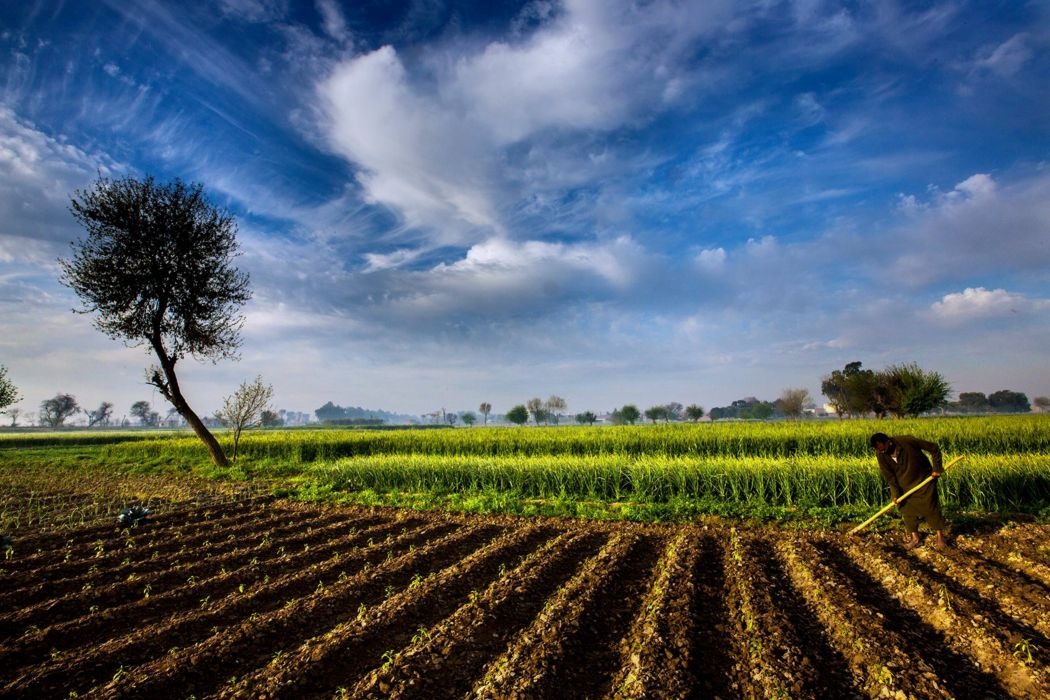ISLAMABAD: Any kind of policy to boost the economy without transforming the agriculture sector is of no benefit. The agricultural landscape of the country will change as a result of research, technology, and innovation, enabling the farmers to become more knowledgeable and competitive, reports WealthPK.
Irshad Khan Abbasi, Head of Innovation and Integration, Pakistan Poverty Alleviation Fund (PPAF), told WealthPK that more research in the agricultural sector is required in order to boost agricultural output, lower imports of agricultural products, and improve the living standard of farmers.
“In the vast majority of developing countries, agriculture is a key component of economy and a powerful engine of growth. Since Pakistan is primarily an agricultural economy, agriculture is one of the main sources of national income and employment. Agriculture industry engages the largest portion of the population, either directly or indirectly,” Irshad said.
“Agriculture accounts for 22% of GDP as against 19.2% last year. At least 37.4% of the labour force in the country is attached to the agriculture sector. More than 65 to 70% of the population depends on agriculture for its livelihood. ”
According to Irshad, major crops such as cotton, wheat, rice, sugarcane, fruits, and vegetables could generate significant foreign exchange for the country. Pakistan’s agro-food exports contributed 17% to the national exports in FY2021. In FY2021, agro-food exports were worth USD4.3 billion, with an increase of 1% over FY2020. As part of the semi-industrialized economy, Pakistan has a well-integrated agriculture sector.
“Although agriculture is considered the backbone of the country, it has recently been plagued by several issues, including a lack of research, adequate technology and water, high input costs, and reduction in the amount of land that can be used for farming. Therefore, enhancing agricultural output necessitates the implementation of novel strategies. It can play a crucial role in promoting economic growth because of its strong forward and backward links with the secondary (industrial) and tertiary (services) sectors,” he continued.
“For agricultural productivity, it is necessary that we should strengthen research organizations and the government should provide them with funds and also involve private companies so that the output could be increased,” the PPAF official said.
“Macro and micro-level structural changes may help revitalize the agriculture sector. There is no denying that a lack of agricultural research facilities has many wide-ranging effects such as poor implementation of long-term objectives, misallocation, and mismanagement of resources with many economic and environmental externalities,” he continued.
“Agricultural education and institutions face great difficulties in ensuring properly equipped laboratories and practice farms and fail to emphasize allocating resources to emerging issues,” Irshad said.
“An additional factor contributing to the agriculture sector’s subpar performance is a lack of ability to create and adopt innovations at each node in the value chain. To increase agriculture productivity, the government must create more research institutes or provide funding to those that already exist so that they have the resources to carry out new research.”
“The government should pay special attention to land and water reforms in terms of natural resources. The lands that are now being farmed require maintenance. The main areas of research for these lands should be soil fertility, salinity, and waterlogging,” he added.





